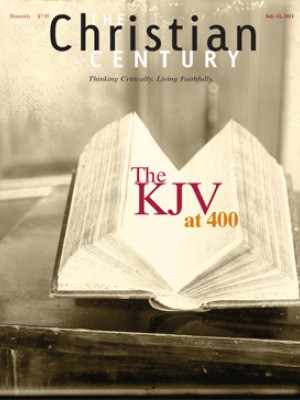Loyal but dissenting believers
Significant majorities of Americans say it is possible to disagree
with their religion's teachings on abortion and homosexuality and still
remain in good standing with their faith. The findings hold true for
major religious groups, including Catholics and white evangelical
Protestants.
The results reflect the complicated tasks faced by
Catholic bishops to discipline politicians who stray from church
teaching or by evangelical groups that try to maintain a traditional
stance as cultural values shift around them.
In fact, the survey
released June 9 by Public Religion Research Institute found that six in
ten Americans chafe at the idea of religious leaders publicly pressuring
politicians on the issue of abortion, as has happened to several
high-profile Catholic Democrats in recent years.
Read our latest issue or browse back issues.
Overall, 72
percent of Americans say it's permissible to disagree with church
teaching on abortion, and 63 percent say the same about homosexuality.
Catholics
closely mirror the general population's position on abortion and church
teaching but are more progressive than the general population on the
issue of homosexuality and church teaching. Two-thirds of evangelicals
(67 percent) said they could differ with church teaching on abortion,
and slightly less than a majority (47 percent) said the same about
homosexuality.
The report focused on the views of millennials
(people age 18–29) and found that they are more supportive of gay
marriage than are their parents. Their views on abortion closely mirror
their parents, however, with six in ten saying abortion should be legal
in all or most cases.
Also, most millennials—68 percent—think that
at least some health-care professionals in their community should
provide legal abortions.
"Millennials are actually more likely to
say that abortion should be available in their local community than say
it should be legal," said Robert P. Jones, CEO of the Washington-based
research firm, which announced its results at the Brookings Institution.
Abortion
services by local health-care professionals are also supported by
majorities of white mainline Protestants (72 percent), the religiously
unaffiliated (71 percent), white Catholics (58 percent) and black
Protestants (56 percent). Minorities of Latino Catholics (38 percent)
and white evangelicals (37 percent) supported such availability.
The
report also found a religious divide on the question of the sinfulness
of having an abortion, with more than 60 percent of white evangelicals,
black Protestants and Latino Catholics seeing it as sinful. White
Catholics, meanwhile, were evenly divided (46 percent each), and white
mainline Protestants were the sole major religious group in which a
majority (55 percent) did not believe it is sinful.
Researchers
found a link between biblical interpretation and opposition to abortion:
almost six in ten Americans who say the Bible is the literal word of
God believe that abortion should be illegal in all or most cases.
More
than 80 percent of people who don't view the Bible as the word of God
but rather as a book written by men think abortion should be legal in
all or most circumstances.
Significant majorities of mainline
Protestants (85 percent), Catholics (78 percent), black Protestants (74
percent) and evangelicals (62 percent) say public schools should teach
comprehensive sex education.
Majorities of Americans who attend
church at least once or twice a week hear clergy talk about abortion and
homosexuality, with most hearing that such practices are morally wrong
and few hearing that they are morally acceptable.
The overall
survey, based on telephone interviews with 3,000 people between April 22
and May 8, had a margin of error of plus or minus 2 percentage points.
The sample of 431 millennials had a margin of error of plus or minus 4.5
percentage points. —RNS






